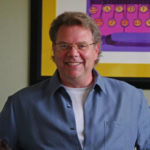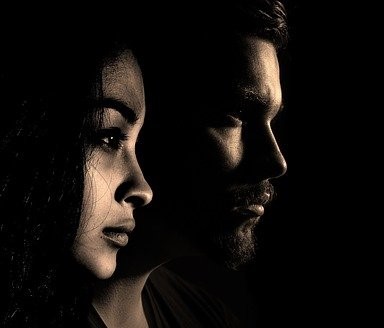When a manuscript isn’t firing on all cylinders, there are so many ways to shift responsibility: Characters that run away with a life of their own. Plotting systems that strip nuance and meaning. Agents who press for writing to market.
It’s not my fault, writers think; the characters (or this dumb outline, or my annoying agent) made me do it. None of the story problems would have happened if the idea hadn’t been poisoned from without. The author didn’t create this mess; the story is the result of those other things.
But something interesting happens when writers take back the power to shape their stories, free from outside influences. As story development consultant Jeff Lyons explains, this empowerment comes from taking ownership of the creative responsibility, becoming a conscious writer who drives the story every step of the way.
The conscious writer
By Jeff Lyons
I’ve always found the perennial debate within the creative writing world about pantsing vs. plotting, outlining vs. riding the muse, or winging it vs. not to be frivolous and divisive. It is a false debate (and perhaps the subject of another post one day), but there is one aspect that is real and tangible and important: Just how prepared does a writer need to be before or during the writing process?
Whether you consider yourself a pantser or a plotter, preparedness looms heavy on your horizon. You can choose to keep it in the distance or near, but you cannot deny it. Like a tenacious chihuahua nipping at your heels, preparedness will not be denied.
Knowing in my writer’s heart of hearts that this is true and feeling torn between both sides of this debate, I’ve come to realize that a common ground exists where pantsers and plotters can meet in a kind of armistice, a place of settlement and accord where real power can be found and real productivity can be realized. This ground asks you to become what I call “a conscious writer.”
My take on this is personal and subjective. Take it for what it is, an offering of truth and reconciliation.
You’ve got the power
The concept of the conscious writer is so fundamental to my teaching and consulting that it has become not just a motto but a manifesto. It’s something I would chip into sidewalks or spray-paint on blank walls under freeway overpasses, if I could get away with it.
The origin of this idea came partially out of my evolution as a writer but even more from watching the thousands of consulting clients I’ve had over the years, both prose writers and screenwriters. So many of them were sleepwalking through their writing careers, blindly following how-to creative writing memes or obediently applying pointless paradigms and theories to their writing.
This forced me not only to wake up in my own writing process, but also to realize that everyone deserves to be awoken from writing somnambulism. Every writer deserves the opportunity to take back their creative power from whatever guru, methodology, or flavor-of-the-month secret sauce they may have given their power away to.
I’m talking about empowerment.
The empowered writer
The word “empowerment” is way overused these days, having been effectively hijacked by the self-help and human potential movements of the 1980s and ’90s. But the word means something, and it means something important for creative people in particular.
Empowerment means giving yourself the permission and the authority— the authorship, if you will—to be powerful. Being powerful means possessing the ability and the willingness to act. When you are empowered, you give yourself permission to have power (i.e., be powerful).
The kicker, however, is that you cannot be powerful or empowered without also being awake and conscious. When you wake up and become empowered, the trances of the writing gurus are broken and the charms of the writing-process charismatics are dispelled. You become free: free to make creative choice, free to act on that choice, and free to become the author of your own process.
It’s time writers took back the word “empowerment” and made it our own.
We live in an age where it has become frighteningly easy to go on autopilot and hand over creative control to experts, gurus, teachers, or some other authority. Being a conscious writer is about taking your creative power back and taking full responsibility for your writing process, creativity, writing successes, and writing failures.
Yes, even your failures. And that’s the good news. Because if your writing failures are always someone else’s responsibility or something else’s fault (such as some writing process or method or widget), then you’re done.
You have no control over other people. You might think you do, but you don’t. You can only control your own actions—your own writing. That’s why being responsible for it all is good news, because now you can do something about it.
So to that end, I have created the “Seven Qualities of the Conscious Writer.” Read them, live them, breathe them—not as some new dogma handed down from on high by a writing guru, but as wisdom you can choose or reject as you wish. Take what works, reject what doesn’t, then move on—by choice.
The seven qualities of the conscious writer
The conscious writer:
- intentionally makes narrative choices based on creative objectives and goals; they do not stumble in the story dark, tripping into a story clueless as to how they got there.
- knows what they are writing, why they are writing it, and how they want to write it.
- is always open to new approaches to storytelling and creative writing, and never dogmatic about any one approach.
- is so steeped in the fundamentals of story development and the best practices of creative writing that whenever they choose to stray from those fundamentals and best practices, they do so with sure-footedness, creative poise, and confidence in their craft.
- listens to everyone, tries everything, but follows no one; they are their own guru.
- takes responsibility for their failures as well as their successes and knows that they, not some fortune cookie, are the only ones who can solve their writing problems—and they love that responsibility.
- doesn’t give their creative power away to anyone or anything. Ever.
Being a conscious writer honors the creative process. It is the only path for achieving a deep, authentic, and meaningful connection with readers or audiences, and it is the finest way to become your best writer-self.

Jeff Lyons is a traditionally published author, produced screenwriter, and story development consultant with more than 25 years’ experience in the publishing and entertainment industries. His writing has appeared in Writer’s Digest Magazine, Script Magazine, The Writer Magazine, and Writing Magazine (UK), among others. He has three craft-of-storytelling books published through Focal Press, all available on Amazon, and currently has two films in development with Content Kings Films (UK).
Sign up for information on classes, consulting, and publishing news at Storygeeks.com, and look for Jeff on Twitter and Facebook.
Understanding how stories work changes everything. I’ll show you how to back up your creative instincts so your ideas hit home. It’s time to accelerate your journey from aspiring writer to emerging author.
Ready to get serious about your book? Apply to work with me.


